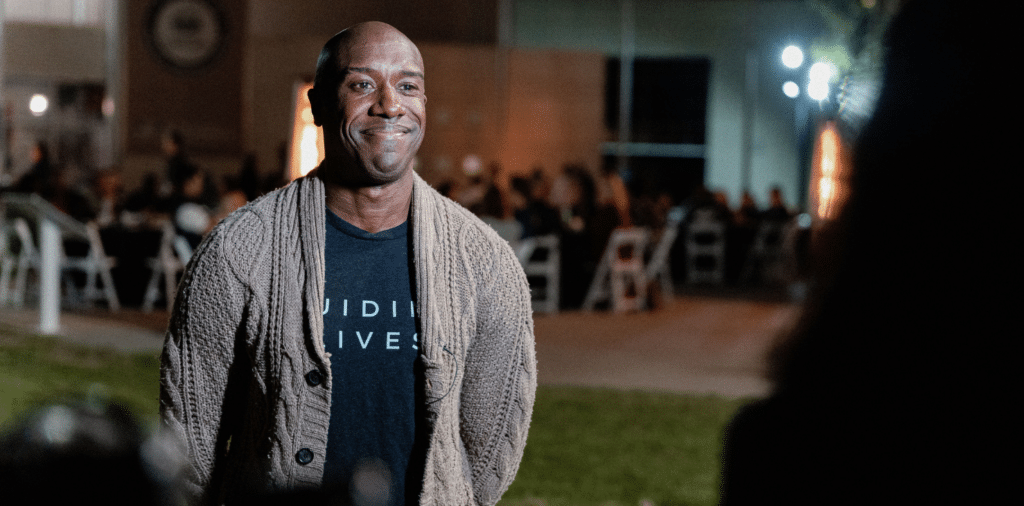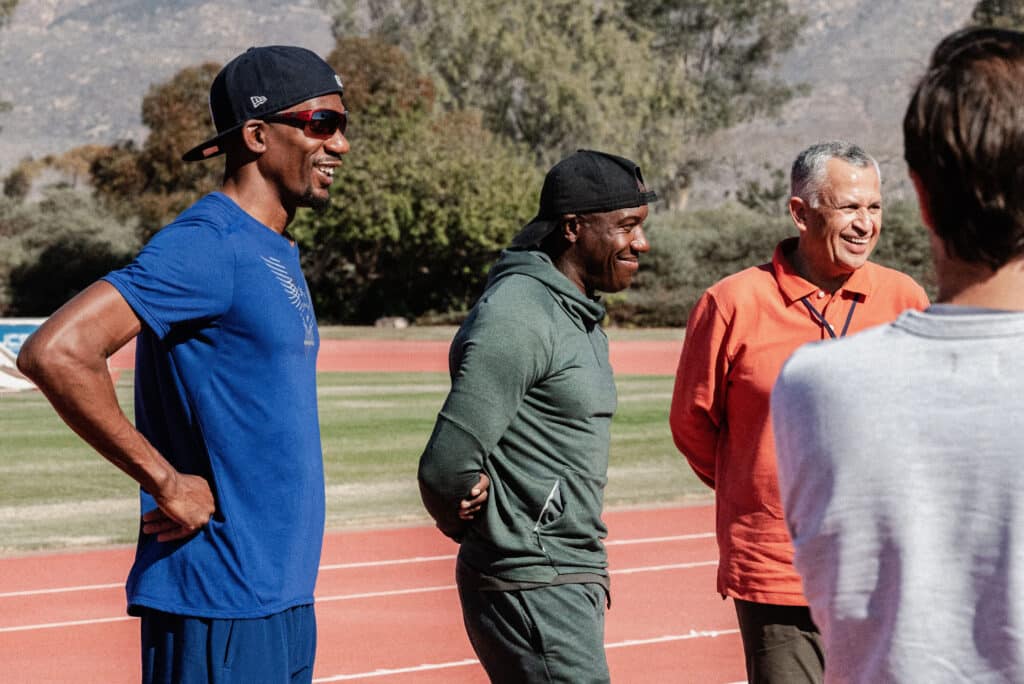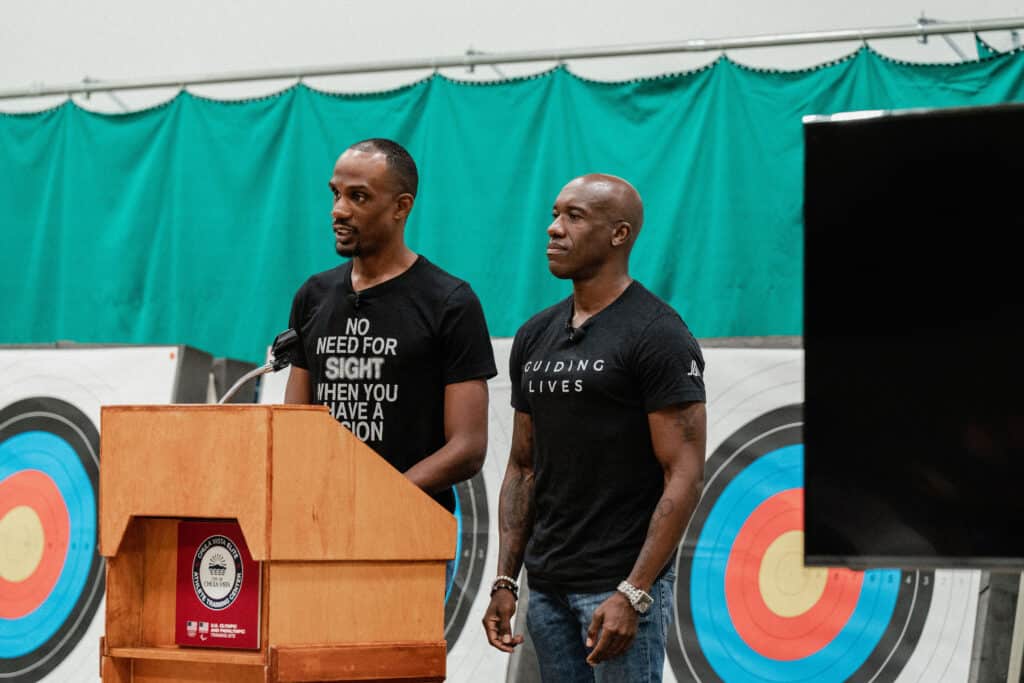Bound Together: A Paralympian’s Guide to Servant Leadership

What is Servant Leadership?
While the term servant leadership may seem like a fleeting buzzword to some—and an outright contradiction to others—the philosophy of using one’s power from a perspective of serving applies to some of history’s most prominent agents of change.
According to Harvard Law School’s Program On Negotiation (PON), Servant Leadership Theory places “the needs, aspirations and interests of their followers above their own.” Prominent historical figures who embodied this leadership style include Martin Luther King Jr., Mohandas Gandhi, Mother Teresa and Abraham Lincoln.
While many servant leaders put their lives on the line for their causes, this leadership style also enables people to change the world in ways that may not be possible otherwise.
In today’s commercial landscape, managers may be hesitant to embrace servant leadership because, in such an approach, they experience greater vulnerability. However, most people can recall the impact of servant leaders in their lives. From school teachers to coaches, presidents to soldiers, servant leaders are all around us. Perhaps their impact is so easy to remember because they care so deeply for others.
How do we best define Servant Leadership, and what place does it have in the business world?
Jerome Avery, a guide runner and three-time Paralympic medalist, is a long-time practitioner of servant leadership in track and field. A regular partner with WDHB in our Gold Medal Leadership Experience, Avery shares his tested knowledge of servant leadership and how he sees this unique approach transform teams in real time.

Above: From left to right: Lex Gillette, Jerome Avery and Sunil Narang during a Gold Medal Leadership Experience.
A Servant Leader’s Starting Line
Avery’s athletic career began outside the context of a team. “I was an athlete striving to be an Olympian in my own right,” he recalls from the early 2000s, when he competed in two separate Olympic trials. “So, my focus was me…. until I got into that team atmosphere.”
After missing the bracket to compete in the Olympics in 2004, Avery’s career evolved when a good friend asked him to guide in the Paralympics.
In track and field, guide runners perform as the eyes for visually-disabled athletes. Tethered at the wrist, guide runners like Avery ensure their partners stay in their lanes, are aware of their surroundings, and ultimately cross the finish line.
As he started guiding long jumper Lex Gillette in Athens, Avery knew he needed to embrace a different approach to reach the podium as a team.
“That’s when I realized being a part of something bigger than myself could equal more success,” explains Avery.
After he started his guide career, Avery already had strong examples of servant leadership he could emulate. “My upbringing, the way I was raised through my mother and father—they were already a part of servant leadership,” he says. “So helping your fellow human being, man or woman, was my upbringing.
“All I did was carry that into the team atmosphere.”
Improving Feedback as a Servant Leader
Because they put the needs of others before themselves, servant leaders rely on constant feedback and communication. Through consistent check-ins, the needs of each teammate become better accounted for and represented.

Thinking back on his training with Gillette, Avery reflects: “Even though I am a guide and leading in what I do, we also need to be guided by the people we’re connected with. [My partner’s] feedback, his knowledge is very important, and that allows me to know that I’m doing the job correctly.”
Avery also guided other professional athletes like David Brown and Josiah Jamison throughout his career. No matter who he partners with, he highlights the role servant leadership plays for every collaboration.
“Each person I’ve had the opportunity to work with [is] totally different,” Avery continues, noting the distinct—or sometimes subtle—physical differences between athletes and how these unique traits influence performance.
“If I were to carry that into the corporate world, everybody has their own strides. But how do I figure out how to match their stride? That’s what’s important.”
By keeping his partners’ needs as a top priority, Avery customizes his communication style to better suit each teammate and, in doing so, forges three strong benefits gained from servant leadership: communication, trust and honesty.

The Gold Medal Leadership Experience
Immerse yourself in the high-performance world of elite athletes to build agility, resilience and a growth mindset.
Fast-Tracking Communication, Trust and Honesty in Business
During WDHB’s Gold Medal Leadership Experience in team-building activities with corporate clients, Avery demonstrates servant leadership by placing workplace colleagues in his shoes: guide running.
“It’s amazing to see two co-workers who are connected, one with a tether and one with a blinder, running alongside each other… from the first time they do it, there’s a hesitance.”
However, once they start depending on each other and openly communicating, “you see the speed and the tempo switch,” Avery says. “It’s something that just happens naturally.”
When better communication, trust and honesty are amplified (or even born) through servant leadership, innovation follows. “[The guide running activity] makes [teams] focus on thinking outside the box, outside that area where it’s just black and white. It gives them confidence.”
Because servant leadership instills better communication and confidence, a common challenge is more easily resolved in the workplace: conflict.
“In that role of servant leadership, you become more vulnerable with feedback,” says Avery, who believes this approach can overcome conflict better than others. “So, it’s easier to have those difficult conversations.
“You’re building trust, you’re talking, so when you’re explaining everything, the guard that is normally there—it drops.”
Ultimately, teams led by servant leaders can not only expect improved internal communication, ideation and confidence, but they can also find themselves better equipped to endure difficulty. On the corporate level, resilient servant leaders can ensure entire companies weather challenging times.
In one such example, a noted CEO guided his company from economic struggle into industry-leading evolution.
An Executive Case Study in Servant Leadership
The late Satoru Iwata, President and CEO of Nintendo from 2002 until his death in 2015, is often cited for his unique actions when Nintendo sales plunged. Instead of cutting his workforce like he was pressured to do, he cut on his own salary and took responsibility for the company’s losses.
Because Iwata’s actions fostered loyalty and innovation, he is increasingly cited as an example of how a company head should act in times of economic instability.
Iwata’s actions and motives reveal how he embodied servant leadership. While he understood that a mass layoff would stifle employee morale, degrade loyalty and disrupt progress, Iwata ultimately cared for his employees beyond the bottom line. He knew that, in the company’s disrupted period, putting the whole first was what Nintendo needed most.
His servant leadership paid off. In the years that followed, the video game giant bounced back from the losses and released the massively successful Nintendo Switch console system. Without the trust, innovation and resilience Iwata cultivated in the years before, the company’s picture may look different today.
The Vision of a Servant Leader
How can leaders instill company-wide communication, trust and honesty?
Jerome Avery says to start with listening. “I always made sure I put myself in a great position to listen, to learn, adapt and adjust.”
Additionally, “Patience is definitely very big,” he says. “As a servant leader, you develop that automatically.”
This ensures that trust and better ways of working together are unearthed and embraced. When this happens, new ideas become accepted regardless of their origins.
“As a guide, we also need to be guided in order to be successful,” Avery says.

Above: From left to right: Lex Gillette and Jerome Avery share insights from the podium during WDHB’s Gold Medal Leadership Experience.
From theory to the field, servant leadership instills communication, trust and honesty in a way that dramatically improves teamwork and ideation. This approach to leading others is a proven game-changer in history, in the Olympic stadium and in the business sphere.
Perhaps Avery’s personal mantra best summarizes servant leadership as a whole:
“Success through selflessness. If they win, I win.”
Edited 26 Thursday 2024 to add contextual references to WDHB’s Gold Medal Leadership Experience.
Author
Subscribe to get Access to Exclusive Content





